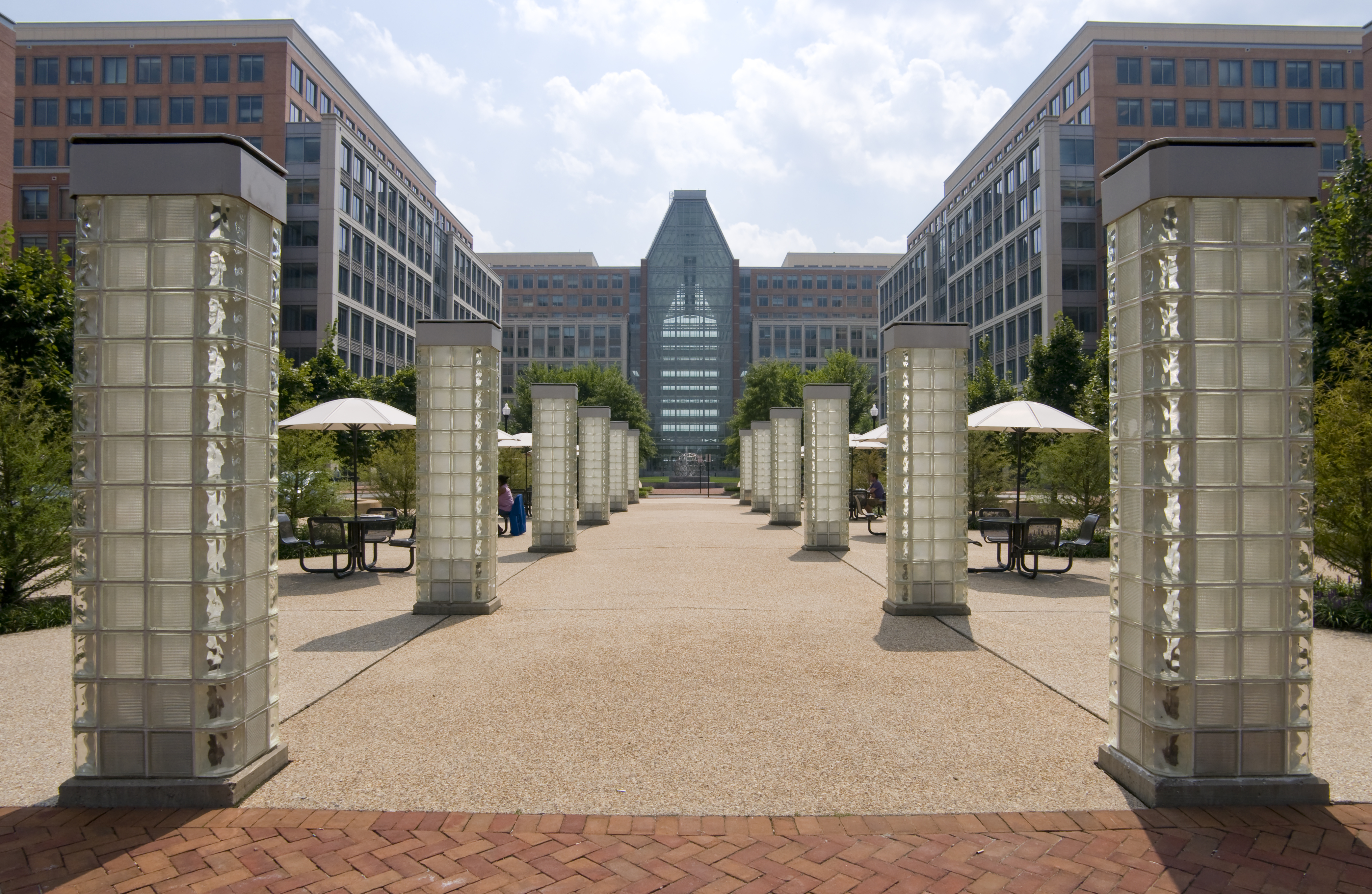
Supreme Court holds that government cannot discriminate against offensive trademarks.
In Matal v. Tam, the U.S. Supreme Court held that the disparagement clause of the federal trademark law, known as the Lanham Act, violates the Free Speech Clause of the First Amendment because the government may not regulate speech “on the ground that it expresses ideas that offend.” The trademark law—enacted in 1946—prohibits the registration of trademarks that “may disparage” any “persons, living or dead, institutions, beliefs, or national symbols, or bring them into contempt, or disrepute.”
Tam arose out of the U.S. Patent and Trademark Office’s rejection of Simon Tam’s application to register “The Slants” as a mark for the entertainment services of his rock band. The band’s current members are all Asian-American and they seek to reclaim this term from its use as a slur for Asians. Although the band could still call itself “The Slants” without a trademark registration, they wanted the registration because it provides substantial legal benefits and makes it easier to stop use of the phrase by others in a manner that is likely to cause confusion in the marketplace.
The Tam case was closely watched by fans and critics of the “Redskins” name for Washington D.C.’s professional football team. The government recently cancelled six of the “Redskins” trademark registrations owned by Pro-Football, Inc. on the ground that the term might disparage Native Americans in violation of the disparagement clause. As this trademark law is now unconstitutional after Tam, it appears that Pro-Football, Inc. will prevail in its dispute with the government over the cancelled registrations.
In Tam, the eight Justices—newly confirmed Justice Neil Gorsuch did not participate in the decision—unanimously agreed that the disparagement clause violates the First Amendment because it targets derogatory expression with an intent to discourage its use, while allowing registration of words and other marks that are positive or benign. Laws that discriminate based on a particular viewpoint or idea must survive First Amendment scrutiny unless they regulate government speech, and trademark registrations are “private, not government, speech.” The disparagement clause did not satisfy constitutional review and thus it was an invalid regulation of expression.
Although all the Justices thought the disparagement clause should be subject to First Amendment scrutiny, they did not agree on the appropriate test for evaluating the constitutionality of the law. In the plurality opinion, Justice Samuel Alito—joined by Chief Justice John Roberts and Justices Clarence Thomas and Stephen Breyer—concluded that the Court did not need to decide whether the law was subject to the more relaxed “intermediate scrutiny” test used for regulations of commercial expression or the “heightened scrutiny” test required “whenever the government creates a regulation of speech because of disagreement with the message it conveys,” because this “happy-talk clause” could not withstand even the less demanding form of constitutional review.
Although Justice Thomas agreed with Justice Alito that the trademark law is unconstitutional under the less stringent intermediate scrutiny test, he separately argued that courts should apply “strict scrutiny” to a law “when the government seeks to restrict truthful speech in order to suppress the ideas it conveys,” regardless of whether the speech at issue is commercial. In addition, in a separate opinion, Justice Anthony Kennedy—joined by Justices Ruth Bader Ginsburg, Sonia Sotomayor, and Elena Kagan—also said the disparagement clause “must be subject to rigorous constitutional scrutiny” because it “constitutes viewpoint-discrimination.” Aside from a few categorical exceptions to free speech protection not applicable here, Justice Kennedy said “it is a fundamental principle of the First Amendment that the government may not punish or suppress speech based on disapproval of the ideas or perspectives the speech conveys.”
Justice Alito, joined by three Justices, also concluded that First Amendment cases upholding “the constitutionality of government programs that subsidize speech expressing a particular viewpoint” did not apply to the law in Tam. He said those programs “all involved cash subsidies or their equivalent,” and trademark registration “is nothing like the programs at issue in these cases.” Justice Alito also distinguished government programs “involving a public employer’s collection of union dues from its employees” from the government’s registration of trademarks, and determined that “the disparagement clause cannot be saved by analyzing it as a type of government program in which” some restrictions of expression are allowed.
The Tam decision will have significant implications in both free speech and trademark law.
In refusing to uphold the constitutionality of a law which bans registration of potentially disparaging trademarks, the Court confirmed there is no categorical exception to First Amendment protection for “hate speech.” As noted by Professor Eugene Volokh, the decision also clarifies that “speech that some view as racially offensive is protected not just against outright prohibition but also against lesser restrictions” such as the denial of a government benefit. In addition, the Court emphasized that it must “exercise great caution before extending our government-speech precedents,” and demonstrated that the government speech doctrine—which exempts laws from constitutional scrutiny—is narrow by refusing to apply it to government registrations of trademarks.
Tam is an important decision in trademark law because all of the Justices agreed that it is appropriate to use constitutional review to balance the government’s interest in regulating trademarks against the right to freedom of expression. Past judicial decisions have generally avoided constitutional analysis of trademark laws.
It is significant that the Supreme Court recognized that trademarks can contain expression, and that none of the Justices said that trademarks are categorically excluded from First Amendment scrutiny. As a result, the Court confirmed that trademarks are unlike the “historic and traditional categories” of expression recognized in past cases like United States v. Stevens and United States v. Alvarez—such as obscenity, defamation, fraud, incitement, speech integral to criminal conduct, so-called “fighting words,” child pornography, and true threats—which the government can generally prohibit and punish without violating the First Amendment. The Court’s evaluation of the constitutionality of the trademark law in Tam was also different than its approach in Eldred v. Ashcroft and Golan v. Holder, in which the Court held that the copyright laws at issue in those cases were constitutional and not subject to heightened First Amendment review because Congress did not alter the traditional contours of protection.
Tam clears the way for First Amendment challenges to other provisions of trademark law. For example, the Lanham Act’s prohibition on registration of immoral or scandalous marks will probably also fail constitutional scrutiny. The U.S. Court of Appeals for the Federal Circuit is currently considering this issue in In re Brunetti, a trademark case involving the government’s denial of an application to register the word FUCT. Profanity, sexual images, and other vulgar terms and symbols are protected expression under the First Amendment—except for obscene speech—and can offend some consumers just like disparaging terms. Because Justice Alito stated that “giving offense is a viewpoint” and “preventing speech expressing ideas that offend” is not a legitimate reason to justify the disparagement clause, it is likely the immoral and scandalous mark provision is also an invalid regulation of expression.
Courts may also find other trademark registration laws unconstitutional after Tam, as discussed by Professor Rebecca Tushnet and others concerned about the decision. In addition, Tushnet has argued—and Professor Mary LaFrance and I, among others, also believe—that trademark dilution laws are unlikely to survive constitutional scrutiny. These laws regulate non-misleading commercial expression and protect the brand message conveyed by a distinctive and famous trademark from blurring or tarnishment “regardless of the presence or absence of actual or likely confusion, of competition, or of actual economic injury.” Although dilution law may not be a valid restriction of protected expression, the government’s refusal to register deceptive or generic terms, infringement laws, and other trademark laws regulating misleading expression and promoting fair competition and truthful expression are likely still valid speech regulations.
Tam makes it clear that trademark laws should be subject to First Amendment scrutiny not just when they prohibit or punish expression, but also when they discourage the use of protected expression, including commercial expression. Trademark laws currently allow registration of subject matter that should arguably remain in the public domain for everyone to use—such as descriptive terms, common slogans, colors, product attributes, and other “nontraditional marks” that were inherently valuable in the marketplace before they were adopted as trademarks. These laws can have a chilling effect on use of this expression, and there may not be a sufficient constitutional justification for awarding these types of exclusive trademark rights after Tam.
Moreover, despite arguments of Simon Tam and others to the contrary, the scope of trademark rights is not limited to the particular category of goods or services for which the mark is registered or used by the trademark owner. Another person or company can be liable for infringement based on use of the mark with any goods or services if that expression creates a likelihood of confusion about the trademark owner’s sponsorship, affiliation, or consent. Dilution laws can also apply to unauthorized use of a famous mark with dissimilar goods and services. Like the disparagement clause, infringement and dilution laws contain vague language. The decisions applying the laws can also be inconsistent and create uncertainty about what expression is allowed and prohibited.
Over-broad trademark laws not only stifle expression that is not misleading; they also make it easier for “trademark bullies” to file trademark lawsuits and send demand letters with frivolous allegations of trademark violations. Many individuals and small companies cannot afford to litigate a trademark dispute and may self-censor and settle with the trademark owner even if the accused infringer would ultimately win at trial. In addition, over-reaching trademark registrants sometimes abuse the trademark complaint procedures of private social media sites, search engines, and online stores, and file a notice-and-takedown request for removal of protected non-misleading expression that contains the registered mark.
The First Amendment may require the government to do a better job balancing trademark rights and the free speech interests of competitors and the public. Congress should clarify in the infringement statute that certain legitimate uses of another’s trademark are allowed, including comparative advertising, news reporting, consumer product reviews, parody, and other editorial, literary, or artistic uses of trademarks. It should also consider eliminating dilution protection for non-misleading uses of trademarks, and refuse to protect trademark rights in descriptive terms, political slogans, and certain nontraditional marks to reduce trademark law’s chilling effects on the lawful use of expression in the marketplace and beyond.
This essay is part of an eight-part series, entitled The Supreme Court’s 2016–2017 Regulatory Term.




